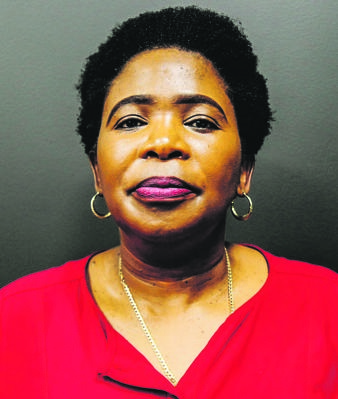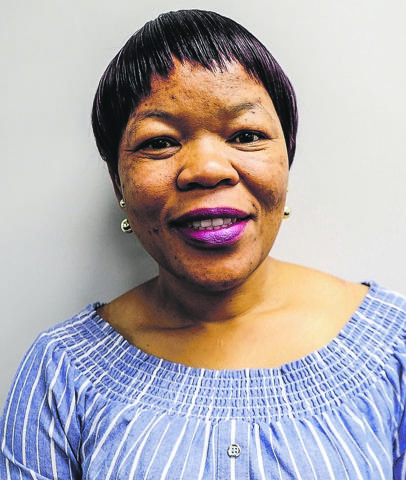
Property can provide a great income in retirement, but you need to understand your cash flow and not overcommit.
Both Nkosi and Thuli have built up property portfolios with the intention of creating an income in retirement.
The challenge for both of them is that they took on new properties too quickly and in some cases the properties are costing a lot more than they can earn from rental. By taking on the Money Makeover challenge, they are getting their finances back on track to achieve their retirement dreams.
Environmental affairs officer and single mom Nkosi became a property investor by chance rather than design. She bought her first home in a township in 2007. Five years later she decided to move closer to amenities and work, which would save her money. She bought a new home in town and decided to rent out her township property.
Based on the success of her township rental, Nkosi made her first property investment, buying a site in her home province to develop a house to let. She has just finished building the property, which has no mortgage as she paid for the building with cash.
In the meantime, Nkosi moved again for work, letting out her town property as well. Unfortunately, she was caught out by making two offers on different properties. She had made a commitment on an off-plan development when she was approved for the purchase of an existing property. Although she could have exited with a penalty, Nkosi decided to stick with the off-plan development as an investment property.
“To be honest, I was a bit shocked and scared about how I was going to cope. I thought it was too late to think about all those things or change anything,” says Nkosi, who now has five properties but struggles with cash flow.
Thuli, a mother of four and head of operations at an NGO, has built up a portfolio of four rental properties with the aim of providing herself with an income in retirement in fifteen years’ time.
Nkosi and Thuli have overcommitted on the properties and did not plan properly for future liabilities like children’s tertiary education – or, in Nkosi’s case, the unexpected cost of supporting a nephew – which has put pressure on them financially.
This is not an uncommon mistake and highlights the need to do a proper financial plan of your own liabilities and the cash flow of an investment property. Rather build up your property portfolio slowly than end up under financial pressure.
Leola Jooste, Thuli’s adviser, and Funi Nemanashi, Nkosi’s adviser, have created financial plans to ensure that Thuli and Nkosi meet their goals of having the properties paid off by retirement.
The first step was for them to focus on settling their short-term debt, including credit card accounts, so that they could instead put those funds into their mortgages. This required following a proper budget and cutting back on unnecessary expenses.
What you are able to afford will determine how much you can borrow. In your application, you can only include rental income for existing tenants, not potential tenants.
Make sure you understand the cash flow. For how long will you have to subsidise the property before the rental covers both the mortgage and the levies?
One of the mistakes Thuli made was buying a property with a high levy in an area where rental income is under pressure.
So be careful of properties with high levies and make sure you do your homework carefully on expected rentals.
Understand the financial elements of choosing the right investment; the cash required for deposits, transfer and registration fees; and renovation costs, as well as the expenses of managing a rental investment.
Cutting losses and focusing on the winners
Thuli property portfolio
Currently all Thuli’s properties are still bonded and the shortfall on the portfolio (difference between rental income and the mortgage and levies) is currently R13 000 per month.
One of the four properties is earning enough income to cover the mortgage, rates and levies, but a property in Pretoria has a significant shortfall of R4 300 per month which Thuli has to pay. This is partly due to a high monthly levy which makes up 32% of the rental income.
Given the current rental market in the area, it is unlikely that Thuli will be able to increase the rental sufficiently to close this shortfall.
Jooste has advised Thuli to sell the Pretoria property, settle the mortgage and use the R4 300 to accelerate the repayment on the remaining properties so they are mortgage-free in ten years’ time.
In retirement Thuli and her husband plan on moving into one of the rental properties, so they will have two rental properties for income.
Jooste has calculated that, by the time they retire in ten years’ time, these will generate an income of around R25 000 in today’s value.
Nkosi's property portfolio
As three of the five properties are already paid off, overall Nkosi does not have a shortfall, but one of her properties does not yet have a tenant and another requires Nkosi to top up R2 000 a month to cover the mortgage and levies.
It is key at this stage that Nkosi find a tenant for her one paid-off property, which means she would then generate a net income from her property portfolio.
Nemanashi suggests that if Nkosi is unable to find a good tenant, she should consider selling one property and using the proceeds to reduce the balance outstanding on the other properties.
This would take financial pressure off her and she would be in a cash generative position sooner.
This is something Nkosi will need to consider if she continues to struggle to make ends meet. There is no point in getting deeper into debt to hang on to a property.
However, if all goes according to plan, Nkosi can expect to generate around R38 000, in today’s value, from her properties in retirement.
The value of a good tenant
The leases on two of her properties are expiring this year and Thuli has noticed that rentals in the area have increas ed significantly. Although she could increase the rental by 25%, Thuli needs to weigh this up with the profile of her tenant. A good tenant who looks after the property and pays their rent on time each month is worth their weight in gold – especially in a weak economy where credit-worthy tenants are in short supply. Thuli has decided to only increase the rental in the new lease by 15% in order to keep it affordable for the tenants but also to benefit from the increased rental market. Being a landlord is often about meeting your good tenant halfway.




 Publications
Publications
 Partners
Partners










